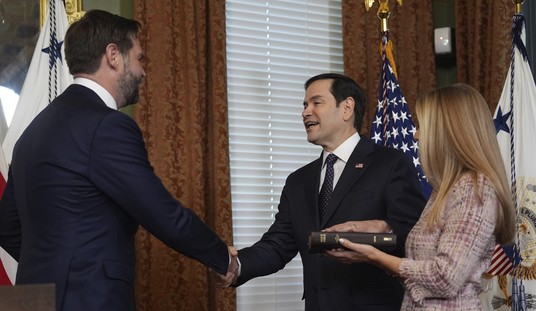This apparently just isn’t going to be my shift to write about good news. Out in San Francisco (where else?) the 9th U.S. Circuit Court of Appeals has thrown out the previous conviction of a Marine who was found to be wearing multiple medals for honors he did not earn. The Supreme Court already ruled on this issue before, but it’s still a sad reminder that engaging in stolen valor is now considered freedom of speech.
A military veteran persuaded a federal appeals court Monday to overturn his conviction for wearing a medal he didn’t earn.
An 11-judge panel of the U.S. 9th Circuit Court of Appeals said a portion of a federal law that made it a crime to wear an unearned military medal violated freedom of speech rights.
The panel found that wearing a medal conveys a message, which is protected by the 1st Amendment.
The Military Times picked up the story as well, and it’s not hard to imagine that a lot of our veterans and active duty personnel aren’t thrilled about it. But the question has been through the courts up and down the line and we seem to have lost out on this one. Unfortunately I suppose I need to resort to the same lesson I frequently dish out to others and remind myself that supporting the Free Speech provision of the Constitution requires protecting unpopular, or even disgusting, outrageous speech. Nobody needs to protect popular speech that the majority approves of.
But it’s still tough to swallow. The people who actually earn those medals are frequently the last ones who would ever brag about it. It’s the visual signal of the gratitude of both the military and the nation for extraordinary service rendered. For someone to appropriate those honors and use them to gain some advantage – sometimes as little as a free meal or cup of coffee – is just insulting right down to the bone. Sometimes it gets even worse and cases of stolen valor show up among people running for elected office.
While the original 2005 Stolen Valor Act was struck down, it’s worth noting that a new version was signed into law in 2013. But it only applies if the fraud is perpetrated with the intent of materially benefiting from it. (Military.com)
An earlier version, passed in 2005, was struck down in June 2012 when the Supreme Court ruled that lying about military heroics was constitutionally protected speech unless there was intent to gain some benefit or something of value by fraud.
The law signed Monday at the White House includes such a provision, making it illegal to make the claims with the intent to obtain money, property or other tangible benefits.
Veterans organizations were quick to applaud Congress and the President for acting quickly on the amended version of the law.
“I think this was necessary because people were using it to receive the benefits of decorations of valor, and they were getting monetary benefit from it,” said John Stovall, director of national security and foreign relations for The American Legion. “That’s why we supported the amended version, not to infringe on anyone’s First Amendment rights but to protect the reputation and meaning of the decorations.”
It’s better than nothing, but I have to admit that it still leaves me without any full sense of satisfaction. People can be convicted under the revised law, but it’s actually only a conviction for the taking of goods or services under false pretenses. It doesn’t really address the actual theft going on, which is far more dastardly.









Join the conversation as a VIP Member